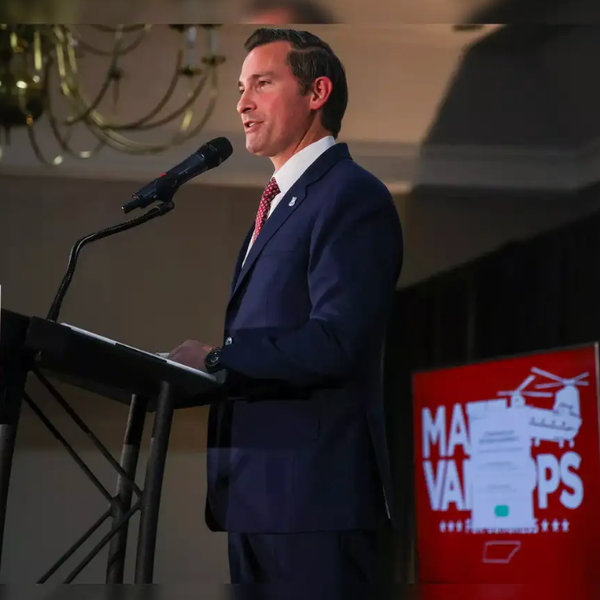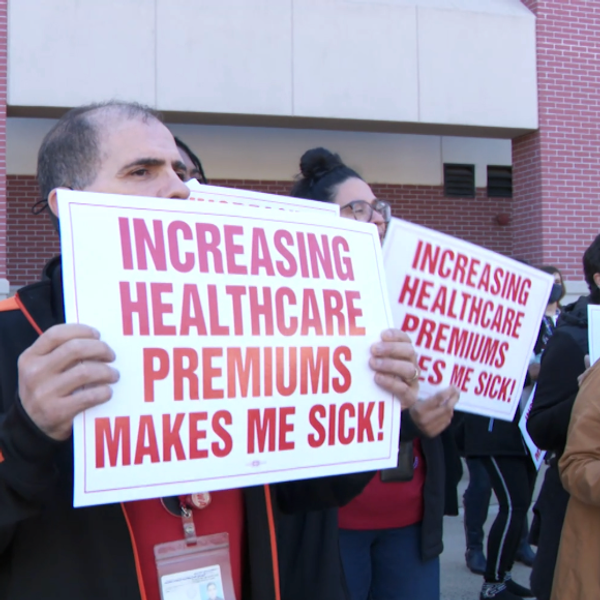
The dichotomies of the current Democratic presidential race—revolution versus restoration, progressive versus moderate—now stand in the way of a rational assessment of what the party has to do to win, and what the times demand.
Democrats need what I’d call a “first-things-first” campaign: a campaign that emphasizes progressive responses to the historically urgent challenges we face and recognizes the difficulties—political, practical, and even philosophical—of trying to check off all at once every item on the progressive wish list.
What are those historically urgent problems? The climate emergency comes first. Candidates call it an “existential threat,” but they aren’t giving it the priority those words imply. In dealing with climate, unlike many other issues, time is of the essence: The more we delay decarbonization, the more costly and political difficult it becomes, until catastrophe will be unavoidable. The basic premise of a Green New Deal also makes political sense: Combine the task of decarbonization with an infrastructure plan that creates jobs and delivers other tangible benefits in transportation, clean water, renewable energy, and other areas.
A second imperative is to preserve democracy in the face of the threats posed by Donald Trump to constitutional norms and by Republican efforts to disenfranchise voters and rig government in their favor. That democracy agenda includes measures to protect voting rights and election security and to limit such measures as partisan gerrymandering and manipulation of the census. (Others have framed this as an “anti-corruption” first agenda.) Closely related, Democrats need to prevent the entrenchment of right-wing power in the judiciary. With one more term, Trump will consolidate control of the Supreme Court, likely turning a 5-4 into a 7-2 Court and enabling an emboldened conservative majority to undertake a wholesale assault on longstanding liberal precedents and principles.
Finally, Democrats need an economic-security agenda that reflects the generational changes in gender roles and family life and addresses the difficulties of young families in affording child care, housing, and other necessities.
There is no equivalence today between the political situations of the Republican and Democratic parties. Republicans are on the verge of consolidating power in ways that Democrats will find difficult to reverse for a long time to come. A second Trump term will give Republicans that long-term advantage. Unlike Democrats, they don’t need legislative majorities in both houses of Congress to accomplish what are essentially negative objectives—stopping Democratic initiatives, declaring liberal policies unconstitutional.
But while one more term for Trump will entrench right-wing power, Democrats are unlikely to make comparable gains from winning the presidency in 2020. They can stop Trump, but they can’t move things as far to the left as Republicans can move them to the right. Unlike Republicans, Democrats do need legislative majorities to accomplish their aims, but there is no chance they will have sufficient majorities in 2021 to enact an across-the-board, New Deal–style agenda.
Here’s the ugly reality. The Senate overrepresents predominantly white, rural states. If Democrats somehow win a Senate majority in 2020, they will win it only by a few votes and depend on the likes of Joe Manchin of West Virginia and other moderates to pass legislation. The House also presents problems. The Democrats won control in 2018 only because of the seats that moderates picked up in affluent suburban districts, and they need to hold those seats in 2020.
It’s not just Congress that looms as an obstacle. Even if Democrats could pass radical legislation, it would be in danger of being struck down by the conservative majority on the Supreme Court.
The historical moment demands bold measures, for sure. A “restoration” is not what we need. I am no fan of “moderation”; I don’t warm to pleas for the middle ground. But, given the political constraints, Democrats have to weigh priorities. While they need to energize their supporters, they also need to persuade skeptics that they’ve got a grip on reality. They have to decide what needs doing now and what can get done now.
In other words, they need to put first things first.
So let me come to the big thing that shouldn’t come first—a comprehensive, single-payer health plan, the kind that goes by the misleading name “Medicare for All” (misleading because it is so radically different from the existing Medicare program).
A Sanders-style single-payer plan doesn’t just pose political problems because it would take away private insurance from people who don’t trust government to replace it. A single-payer plan also requires raising more than $1 trillion in revenue, about as much as is collected through the personal income tax today. There isn’t a snowball’s chance in hell that Democrats are going to be able to enact those taxes.
Moreover—and here’s the key point from the first-things-first standpoint—raising all that revenue to replace private health insurance premiums and out-of-pocket payments would make it impossible to do anything else.
The last two Democratic presidents spent their political capital on health care in their first two years. Bill Clinton failed and Barack Obama succeeded in passing health legislation, but they both lost control of Congress at the first midterm election. Democrats can’t afford to do that again; they need to build power over time, not lose it at the first opportunity.
That’s not to say that Democrats should avoid health-care reform. Attacking the prices of drugs and health care should be part of an economic-security agenda. They ought to try to make Medicare available as an option at age 50 for people otherwise uninsured. What they shouldn’t do is get caught up in another effort to overhaul the health system that will swallow up their entire agenda.
Democrats don’t just need to win in 2020; they need a successful presidency. If they wage a focused, first-things-first campaign, they have a shot at succeeding, building on that success, and earning the necessary support to move on to other progressive aims. They need to show they are a party ready to govern.








